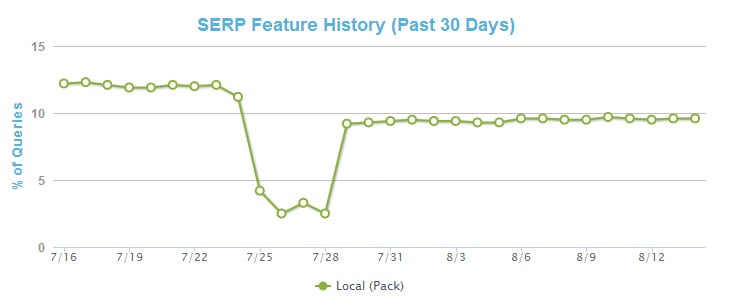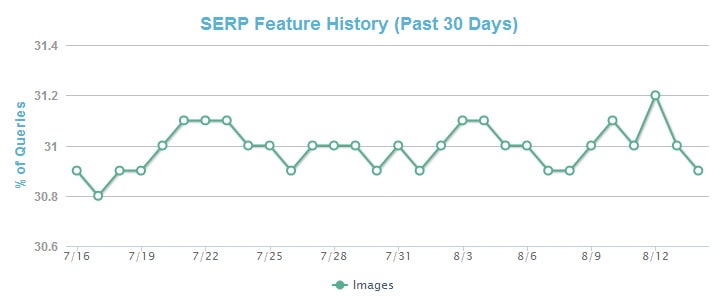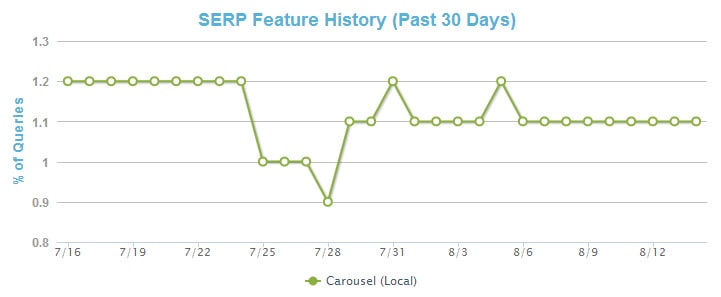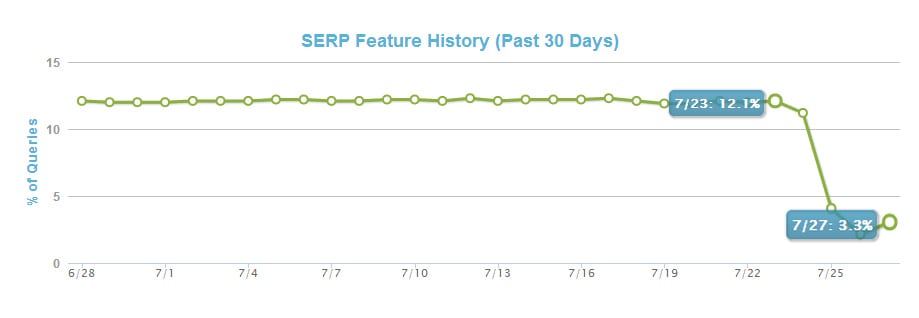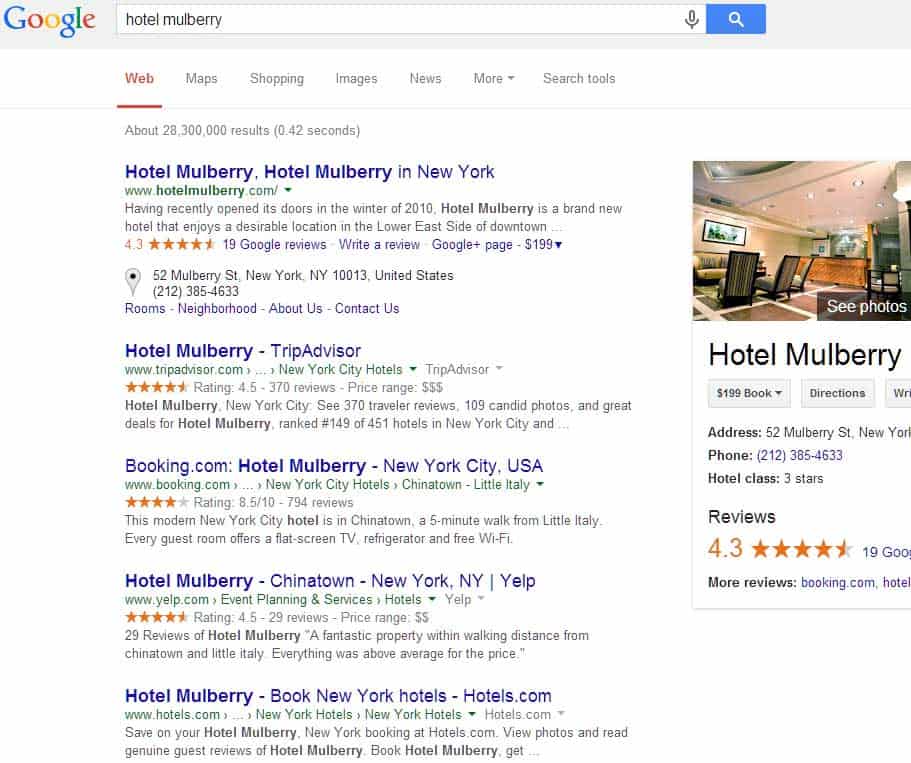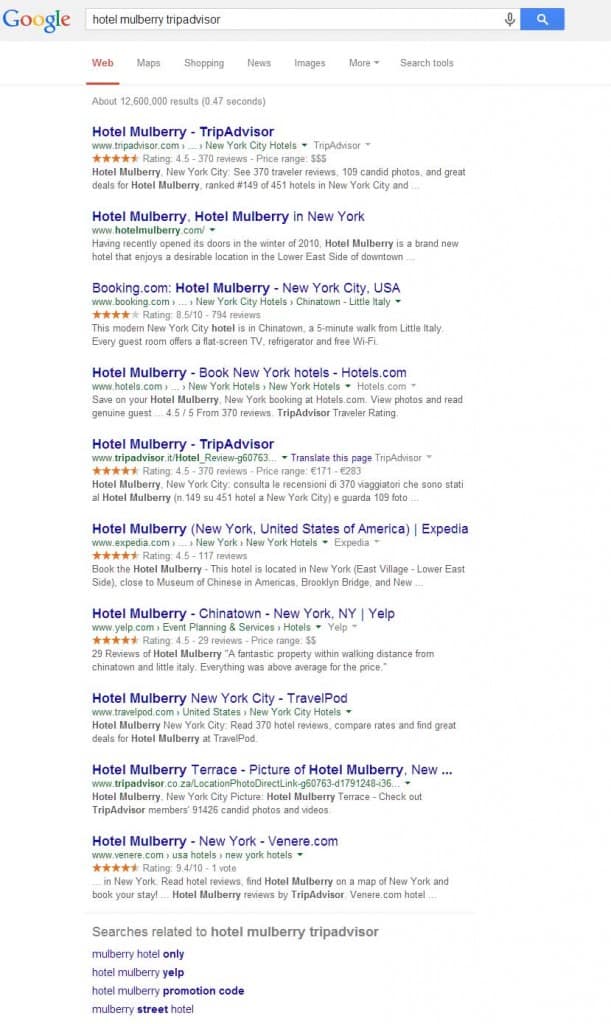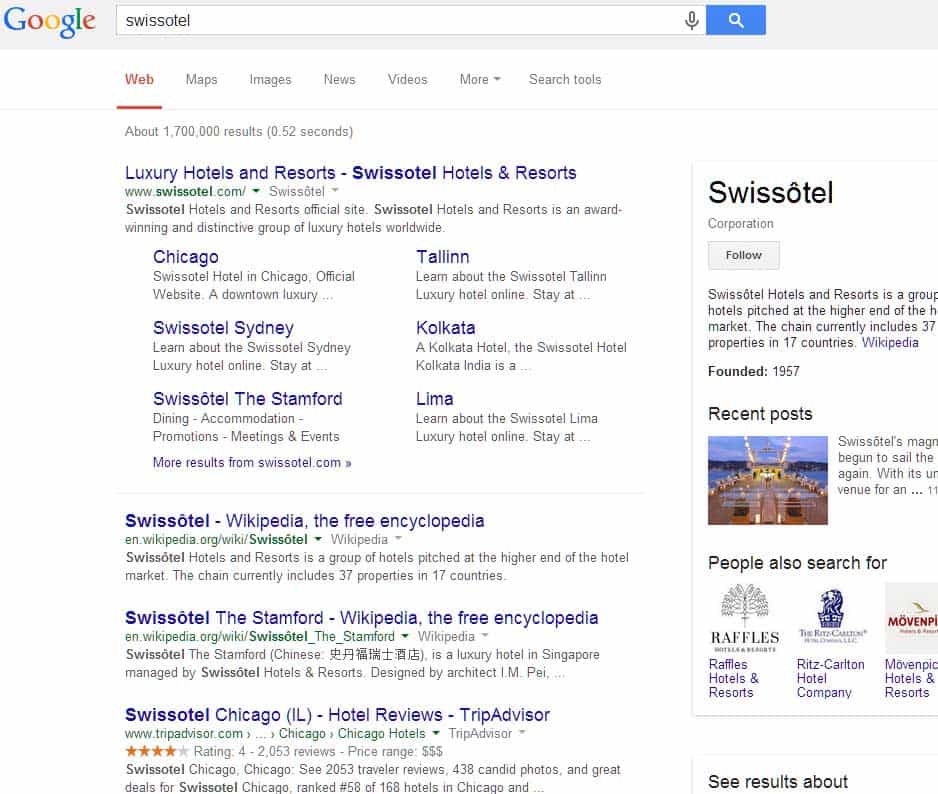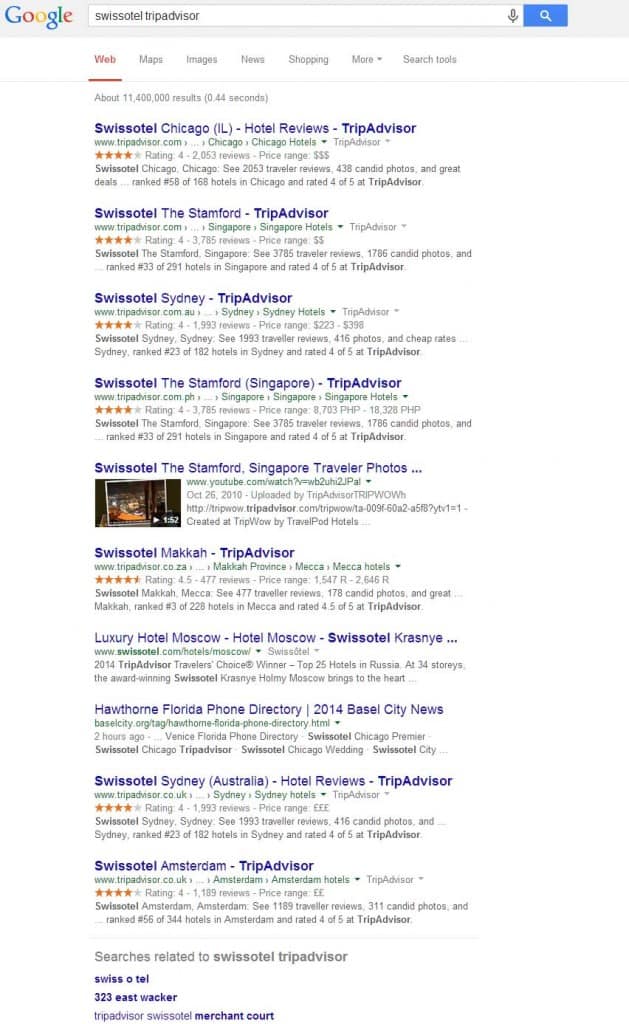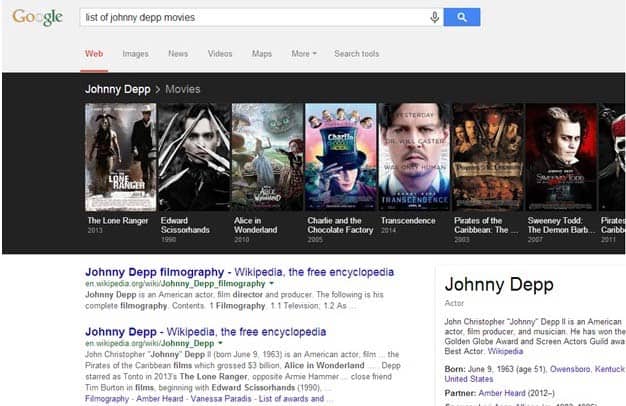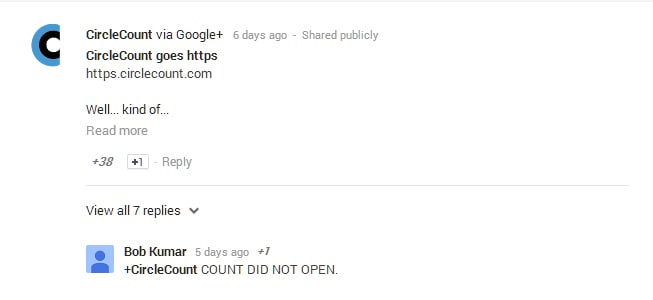Google Pigeon Algorithm – Most Significant Changes To Ranking Signal
The recent Google pigeon algorithm implemented by Google on July 24th provides practical, precise and relevant local search results that are of greater help to users than the previously generated organic search results. The change in Google’s Pigeon Rank Algorithm has affected the local search listings, and this is visible on the Google Web and Google Maps Search Results page. Major changes have been made behind the curtain, and the ripples are beginning to show on the surface. Due to this change, local businesses might have noticed slight amounts of increase or decrease in the leads generated, website referrals and online business. The latest Google Search Engine Algorithm shares deeper roots with their search results capabilities, consisting of the numerous ranking signals that are used every day in web search along with search tools such as spelling correction, Knowledge Graph and synonyms, etc. In addition to these factors, the latest Google Algorithm Updates improve on their present distance and location ranking parameters. Even though Google accepted that a new algorithm change has been implemented, they declined to name this update. Barry Schwartz, the News Editor of SearchEngineLand, named this the Pigeon Update, since the changes affect local listings only. Three factors played an important role in this nomenclature.
- Most of Google’s prototype devices or pre-production products/services are code named after animals or birds. For example, their previous algorithm updates were the Panda and Penguin, while the upcoming Google Nexus 5 is known internally as the Hammerhead. Hence, Pigeon seems apt!
- Since the names of the earlier algorithms started with the alphabet ‘P,’ it was customary to do the same this time around too. Once again, the name Pigeon stuck on!
- Google’s Pigeon Update Affects Local Search Listings only and we know that the pigeon is a domestic bird that likes to fly home at the end of the day. Hence, the name makes sense.
What is the Google Pigeon Algorithm and what are its Functions?
I want you to get the basics clear right from the beginning as Google is very strict when it comes to implementing guidelines and penalizing websites for playing with the Rules. When Google sets up Rules, these Rules are legit, and when they say that your website’s ranking on their Search Engine depends on 200+ factors, Google is not faking it. Finding out what these factors are and studying them in detail could take up to a few years, as a major part of these factors are constantly upgraded. Most of these upgrades are on-site, commanding greater focus and attention. A complete SEO Audit can help you figure out the missing aspects from your website, like Meta Information, content and the navigation, etc. You website’s search result rankings are bound to improve once the suggested corrections are implemented, and Google conducts a thorough research before implementing a new algorithm.
I . Changes to Local Listing Packs and Keywords Go Missing
In the pre-Pigeon era, the top-three search results tab would have been hogged by Pizza Hut, Dominos or any other reputed business franchise. However, in the post-Pigeon era, local businesses are getting priority. Their menus, photographs and reviews will be added to Google Plus (G+), which will then feature on Google’s SERP. Local business owners can make use of this situation and share the content of their business or improve business activity on Google Plus, to further enhance their visibility. The latest update from Google is undoubtedly quite large. Even though we do not have the official statistics, it is large enough for Webmasters and SEOs to report major activity and fluctuations. While some were happy with the changes, others were complaining. Even though this is a common phenomenon every time Google introduces an update, the sheer scale of the fluctuations is what sets things apart this time. There was a lot of activity, claiming that the quality of posts had fallen by 60-% since the new update came into effect.
Image 1: Local Pack Data
This image borrowed from Mozcast indicates a drop in the Local Pack for queries after Google Pigeon was introduced. Similar results are seen for the various other images, depicting Google Images and Carousel, etc.
Image 2: Google Images
Image 3: Google Carousel
The major change that was witnessed right after the Pigeon update came into effect was the lower number of queries including the local listing packs. According to the SERP Feature History from MOZ cast, the number of queries reduced from 12.1% on 23rd July to 3.3% on the 27th of July, as showcased in Image 6.
Image 4: Drop in Queries
If your website were affected within a similar time frame, it could be a result of the Penguin Update. In order to cover for the losses within a short time frame, you could opt for a PPC campaign while a viable long-term strategy would be to get Web Search Listings for your targeted keywords. Another interesting addition that was made to enhance the local listing experience is showcased in Image 7 below.
Have You Seen This Before?
I have experienced a new feature in Google when I was looking for hotels in the search query. Google asked me whether I was looking for local results in the United States. This feature is currently available only in the USA and should soon be introduced globally. This looks like another potent addition, all thanks to the Pigeon update, which is aimed at enhancing the local listings pack. Yelp!, TripAdvisor, UrbanSpoon and Many Other Local Directories Get the Best from Google’s Pigeon.
Image 5: Zip Code for Local Results
Here is a detailed analysis on Yesterday’s Google Pigeon Rank Algorithm, which set the local directories free. From this analysis that I put forth, it can be clearly seen that local directories like Yelp, TripAdvisor, and UrbanSpoon are getting the better off other web-pages after Google let the Pigeon out of the cage. Google fixed one of the major problems ‘Yelp!’ was having with their SERP’s. Yelp had accused Google of manipulating their search results to display their local listings before the listings of ‘Yelp!’ even when the search queries included the term ‘yelp’. After the update was leashed on the 24th of July, webmasters noticed that when search queries included the term ‘yelp’ the SERP’s were filled with local listings from the directory of Yelp! And for some queries the entire first page SERP’s listings included links from directories of Yelp!
Image 6: Hotel Mulberry Search Result
When “hotel mulberry” was used as a search query in Google, SERP’s displayed the chief website of “Hotel Mulberry” at first followed by listings from all other local directories like TripAdvisor, Booking, Yelp, Hotels etc. (See Above Image)
When the same keyword was followed by this format (Keyword + directory) it displayed this result. In this case, I used “Hotel Mulberry (Main Keyword) + TripAdvisor (Directory).” (See Below Image)
Image 7: Hotel Mulberry TripAdvisor Search Result
The results displayed the listing from TripAdvisor followed by the main website of “Hotel Mulberry” and then listed other leading directories like Hotels, Yelp, TripAdvisor, Booking etc. Similarly I conducted a search for “Swissotel” and the SERP is displayed below.
Image 8: Swissotel Search Result
The results displayed the main website of “Swissotel” followed by links from Wikipedia and TripAdvisor. Again local directories are getting a lot of preference after the Pigeon Update.
Image 9: Swissotel TripAdvisor Search Result
When the same keyword was used along with “TripAdvisor”, it can be seen that the entire first page is filled with listings from TripAdvisor.
Local Directories Have Also Benefited
Not only is Yelp! And TripAdvisor benefiting from this update, but all local directories are also getting the best of the latest Google Pigeon Rank Algorithm. Though it may look like these two directories and similar styles are profiting from the Pigeon update more than other directories, but the ‘other-directories’ are also not lagging behind. The Google Update clearly mentioned that it will tie local results more closely to standard web ranking results. The reason that Yelp! And TripAdvisor are dominating the SERP’s is not because of this update, but simply because these websites have a far superior SEO framework than any other directory website.
What Point do I Want to Prove
From the aforementioned examples, I want to prove this point that though the Pigeon has only flown over United States, it will hit the global environment soon. The best measure to make sure that your local business does not get a piece of the Pigeon dropping is to enlist your business in as many local directories as possible. Give your website / business an authority in terms of Geographic location and Identity. This will be a boon for companies with local establishment and limited resources who have forever suffered the blow of the Major MNC’s and Silicon Valley Organizations.
II . Google Local Carousel – What is it?
Local Carousel’s were introduced back in April 2013 (or around that time). This was one of the most significant changes Google made to its Search Result Displays around that time. A Google Local Carousel is just like you can anticipate; a carousel (Image bar with links) at the top of the display results. If you are still wondering about what a Google Carousel Looks like, here is an image for a better picture.
Image 10: Google Carousel -List of Johnny Depp Movies
As you can see above, the Carousel was a great addition to search results, it makes the entire process of query hunting much easier and it is ‘definitely’ worth optimizing for. Even though at the moment Google Local Carousel is displayed only for 1% of the search queries, it is still worth optimizing for your business page.
What Happens in Google Local Carousel?
Just like I mentioned before, the Google Local Carousel is only shown for 1% of the keyword entries in Google, it is the right time to optimize your business page for Local Carousel as very soon SERP’s will start displaying them for most incoming local searches – At least, as much as it would be possible.
How Does the Google Local Carousel Work?
The time is soon to come, when Google will display Local Carousel for most incoming searches. It has already received so many positive feedbacks for Google Local Carousel, and I am sure it is working towards inculcating it in an in-depth pattern. For now local restaurants and hotels are the most to make appearance in Google Local Carousel. There are also different filters that can be customized in the carousels and they will change the search results according. Something that people forget to mention or that I do not find in any other blogs is that the Carousels can also come up for other “not local” searches – This is the reason why I have uploaded below the pictures of Google Carousel for “List of Horror Movies” (To show the difference). There are lots of customization options for these searches, just like for the below search, there is an option to search by “Year” and “Genre”.
Additional Details on the Google Carousel
The carousel was introduced to give local business an incentive to engage online, there are quite many benefits of Google Carousel:
- The Carousel Images are attractive to look at and get more engagement by users. It is a tendency of users to click on attractive images first when they are searching for local businesses. Surveys conducted clearly show that most users always opt for businesses with a visual appeal before making a purchasing decision.
- The Detailed listings above the SERP’s are a great relief, as there is high chance of recognizing and finding your query with an image than by reading all the (boring text) below to find out exactly what you need.
- The Local Carousels also display a Local Map aside the SERP’s to give a more visual idea of where the local business are based – (It’s easy to spot something on a map and check out directions to reach the page, all from the Search Results page).
- There is an added option to hover over the Carousel Images of businesses to such as Contact Information, Hours of Work, and Email-Id etc.So stop dreaming, and get talking with your SEO Consultant immediately.
What I Would Like You to Do
Even though you do not have a choice about whether you want your business to show up in local carousel (not that you would have any reason against the same), there are a few things you can do to make the best of Google Local Carousel (When it hits your domain). There are a few things to follow so that you can get your Business befitting the guidelines Google Local Carousel. Keep in mind that the Local Carousel will be the most beneficial for small businesses, as it gives you the opportunity to shine, against all odds as compared to bigger and more powerful organizations. Make a difference now, as our analysis shows, that Local Carousel has won 48 percent of the clicks as compared to the first spot on first organic search. This will also give the right visibility to connect with the local users. First thing to do is remove all the Low Quality images from your website, and replace with the most high quality images. Google will randomly select a photo from your page to select a head photo (Which will represent your website in the Local Carousel). Second thing you should be aiming at is keeping your pages update with all the SEO measures (It’s not possible to be perfect, but you have to keep it as updated as possible). The rest will be taken care of by Google itself.
III . Yeah! Google Pigeon Drops the Security Bomb
Google has forever given top priority to Security and recently, it has launched the Security Bomb on search engines. All leading businesses today try to invest as much resource and energy as possible in keeping their Sites updated and fit according to the Google SEO Guidelines. Now Google has decided to reward the websites which also give priority to the security of their users along with the content that is displayed to give the users an ultimate web browsing experience that is not only result-oriented but also secure. We are talking about websites with strong HTTP’s encryption by default.
Google insists on making the internet a powerful set secure place for its users and is going to change its ranking algorithm in a pattern to give websites with secure HTTPS and SSL certificates more priority over the others. These changes have already been adopted by Google in its services a long time ago, like Google Search, Gmail, Google Drive are good examples of a secure connection – according to Google. This is how a website with secure SSL certificate and HTTPs looks like:
Image 11: Example of a Website With Secure SSL Certificate and HTTPs
Webmasters who were present at the Google I/O this year should have already know this was coming as Google had launched a campaign called “HTTPs Everywhere.” Since then we have even seen various corporations adopting the HTTPs. I conducted a thorough research to see if the changes were visible in the SERP’s and I realized, though it may seem insignificant at the moment, but the results are already starting to shine for those websites which have made a change.
Image 12: Comment Taken From Google Web Master Center
The above screen shot (was taken on 13th August) is of a comment from the Google Web Master Center. Google clearly mentions that this is a “very lightweight” ranking signal for every website; in fact Google also added that it is less regarded than the actual “high-quality” content signal. Google further mentioned that this Security Bomb will only affect less than 1% queries globally. Considering the size of the internet, that 1% grows up to be a size that can dwarf all businesses and organizations alike.
What I Would Like You to Do
You should consult with your SEO before making the migration from HTTP to HTTPs so that it does not affect your traffic adversely. Things that you need to understand in order to make the migration:
- What kind of certificate your website needs? Single, Multi-Domain or Wild-Card Certificate.
- Always Use 2048-Bit Key Certificates
- Always Use Relative URL’s for resources that inhabit the same domain
- Don’t forget to update the robots.txt file to ensure that you don’t block your HTTPs site from crawlers.
- Avoid no index robots Meta tag as much as possible.
Don’t forget to track your HTTP to HTTPs relocation in your analytics software and also within Google Webmaster Tools.
For All Who Don’t Want to Read the Details
Checklist to Help Avoid the Pigeon Dropping
Yes! I am well aware of the fact that it turned out to be a lengthy piece of article, but I had no options but to include whatever ever changes I found significant and whatever I think might be important in the near future. If you just want to skim through the details to find out what elements of the SEO you are in control of, this is a perfect checklist for you to absorb the changes from the very start till the end.
- In case you have noticed a significant drop in your local listings for various keywords, there is a possibility that you have been dropped on by the Pigeon. Possible solution is to run a PPC campaign for the short run, but the only effective and long term strategy will be to optimize and run more content development campaigns for those keywords.
- Make sure that your website has the good authority. Check all your back links, content and other SEO metrics to find out that your website authority is in good shape.
- Focus on enlisting your website in as many local directories as possible, as the Google’s Pigeon Rank Algorithm has been very considerate on these websites.
Final Verdict
Since Google implemented the Pigeon Update on the 24th of July, numerous changes in the Google SERP have surfaced. Unlike the Panda or Penguin updates, the Pigeon does not ban websites or flag low quality content. It is unique in its functionality, as it prioritizes local listings obtained on the SERP, helping small and medium segment businesses flourish. During the period between July 24th and 25th, a huge wave of irregularities was noticed in the page rankings. While most business owners could not recognize the surrounding changes, SEOs and Webmasters were aware of the ongoing changes. Optimized websites are not the first priority anymore, defying the laws of Domain Authority. With the help of an in-depth analysis, we see that registering your website with local directories such as Yelp!, UrbanSpoon and TripAdvisor, etc. is paying off for the time being. Google has also decided to reward websites that follow its security protocols while staying updated. The shift to secure HTTPS and SSL certificates will also pay off in the long run. Overall, we can conclude that the Google Pigeon update introduces a host of new features while making your browsing experience safer than ever. Website owners should make it a point to upgrade their website at the earliest to reap the benefits.
Have you started making changes to your website already? Don’t wait for the Pigeon to drop on you, and hit the chords for this new boon – Starting Today! Share your experience and problems as they come, in the comments section below.

